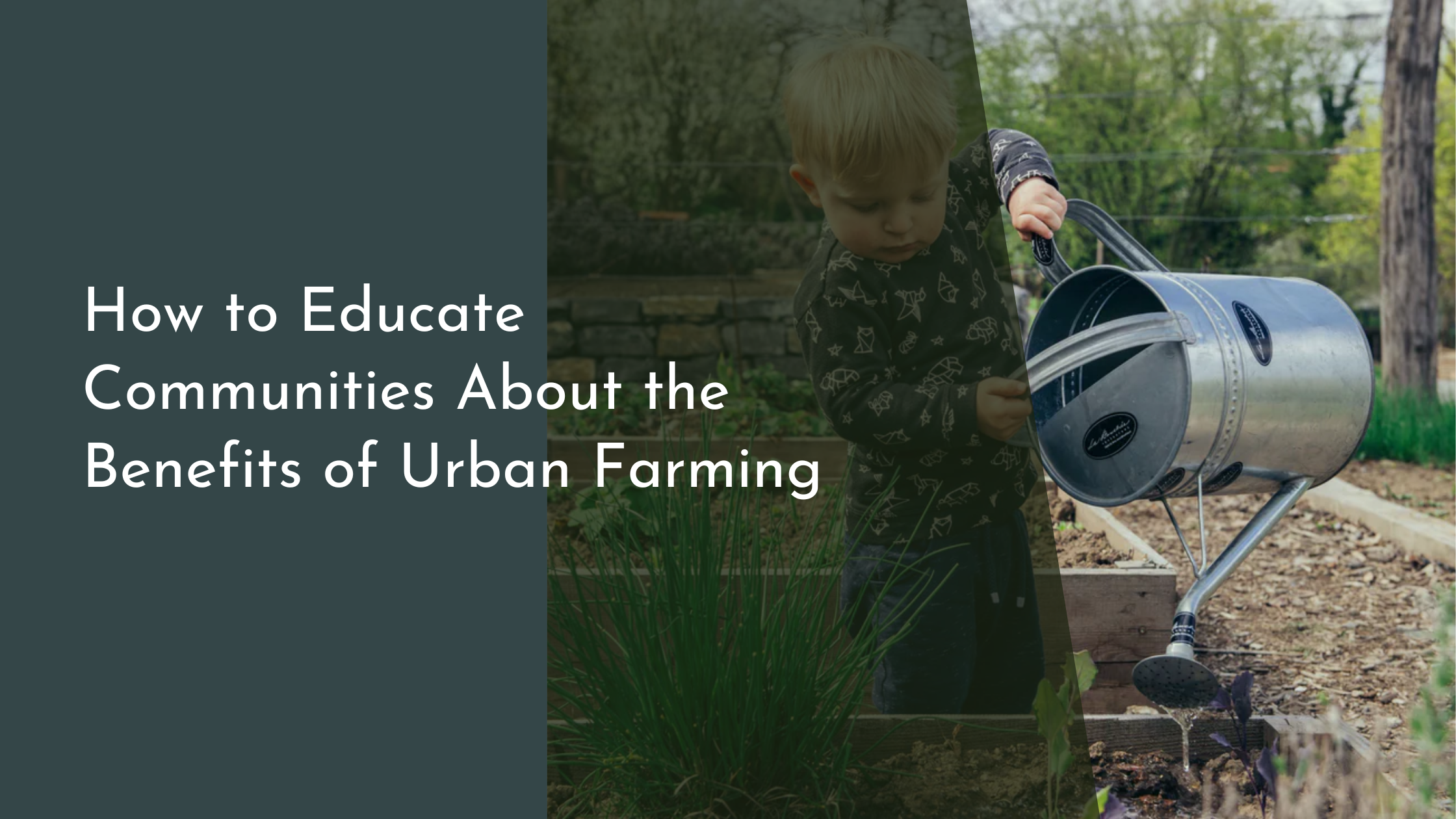How to Educate Communities About the Benefits of Urban Farming
Urban farming is rapidly gaining traction as a viable solution to a host of urban challenges, including food insecurity, environmental degradation, and community disconnection. However, for urban farming to truly take root and flourish, it’s essential to educate communities about its myriad benefits. By increasing awareness and fostering enthusiasm, we can transform our cities into vibrant, sustainable landscapes that contribute to both the well-being of residents and the health of the planet. Here’s how communities can be educated about the benefits of urban farming.
Understanding Urban Farming: A Fresh Perspective
Urban farming involves cultivating, processing, and distributing food within city limits. This practice brings a fresh perspective to city landscapes, offering a means to produce fresh, local food while enhancing urban ecosystems. By transforming underused or vacant spaces into productive green plots, urban farming helps mitigate urban heat, enhance biodiversity, and improve air quality. Understanding these environmental benefits is crucial for communities to appreciate how urban farming can contribute positively to their neighborhoods.
Moreover, urban farming can be a tool for social change. It provides an opportunity for community members to come together, thus fostering social cohesion and community spirit. Through shared gardening activities and collaborative projects, individuals from diverse backgrounds can forge stronger ties, learn new skills, and develop a greater sense of belonging. By highlighting these social benefits, communities can embrace urban farming not just as a means of producing food but as a way to strengthen communal bonds and improve overall quality of life.
Engaging Local Leaders to Champion the Cause
Local leaders play a pivotal role in advocating for urban farming initiatives and can be instrumental in driving community interest and engagement. Engaging these leaders involves educating them about the potential benefits of urban farming, such as increased food security, economic opportunities, and environmental sustainability. Once informed, these leaders can leverage their influence and networks to champion urban farming, making it a key component of local development plans and policies.
Furthermore, collaboration with local governments, educational institutions, and nonprofit organizations can amplify the reach and impact of urban farming efforts. By working together, these leaders can facilitate access to resources, funding, and technical expertise needed to establish and sustain urban farming projects. Encouraging local leaders to embrace urban farming not only legitimizes the movement but also ensures its integration into broader community development agendas.
Fun and Interactive Workshops for All Ages
Workshops serve as an engaging and effective method for educating communities about urban farming. These hands-on sessions can be tailored to suit all age groups, ensuring that everyone from young children to seniors can participate and benefit. Workshops can cover a variety of topics, including composting, vertical gardening, and sustainable pest management techniques. By involving participants in interactive activities, they gain practical skills while developing a deeper appreciation for urban agriculture.
To make these workshops more appealing, incorporating elements of fun and creativity is essential. This could include organizing cooking demonstrations using freshly harvested produce, hosting art sessions to paint garden pots, or creating storytelling events centered around the history and future of urban farming. Such initiatives not only educate but also entertain, making the learning process enjoyable and memorable for all attendees. By fostering a playful and inclusive environment, these workshops can inspire a new generation of urban farming enthusiasts.
Building a Sustainable Future Through Urban Farming
Urban farming is a cornerstone of sustainable urban development, offering a pathway to greener, healthier cities. By reducing transportation emissions associated with food imports and promoting sustainable agricultural practices, urban farming contributes to the fight against climate change. Educating communities about these environmental benefits helps create a sense of urgency and importance, motivating individuals and organizations to support and engage in urban farming activities.
In addition to environmental sustainability, urban farming supports economic resilience. It creates local job opportunities, encourages entrepreneurship, and nurtures food sovereignty by empowering communities to produce their own food. By highlighting these economic advantages, communities can be encouraged to view urban farming as a sustainable business model that not only provides fresh and affordable produce but also strengthens local economies. Together, these efforts can pave the way for a more sustainable and equitable future.
Urban farming holds the promise of transforming our urban landscapes into thriving centers of ecological health and social well-being. By educating communities about its benefits, we can foster widespread enthusiasm and support for this vital movement. It requires a concerted effort involving local leaders, engaging workshops, and a focus on sustainable practices to ensure that urban farming becomes an integral part of our cities. With commitment and collaboration, we can cultivate a future where urban farming is not only a source of food but also a catalyst for positive change.

